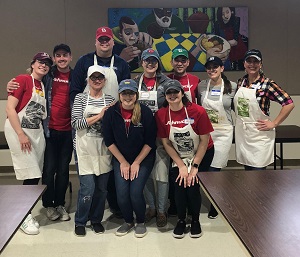Patrick Kojima: building patient trust
We are proud to partner with providers and pharmacists dedicated to helping patients access their prescribed medications.

In our spotlight series, we interview providers and pharmacists from around the country to shed light on their important work and the life-changing impact of patient assistance.
We recently spoke with Patrick Kojima, a Clinical Specialty Account Manager from Schnucks Pharmacy in St. Louis, MO. Schnucks Pharmacy prides itself in nourishing the lives of patients by providing the tools and resources they need to improve their health. In our discussion, Patrick explains how trusting relationships between pharmacists and patients can help identify and overcome barriers prior to treatment initiation.
What is your position at Schnucks Pharmacy and what is most rewarding about your job?
I’m a pharmacist by training and currently a clinical specialty account manager. In my role, I clinically manage patients as well as relationships with referral sources and providers. I spend time in a youth HIV clinic providing patient assistance, education and clinical management. I also provide these services—including care coordination—in an adult infectious disease clinic. The most rewarding part of my job is connecting patients with their medications to achieve our mutual goals.
In your experience, what services best support a patient’s adherence to treatment?
The relationship that a pharmacist builds with their patient is critical in the care process. We strive to earn the trust of our patients and identify barriers to therapy prior to initiation. Depending on the patient’s needs, we connect them to supplemental services such as food, nutrition counseling, case management and support groups. Ultimately, Schnucks Pharmacy seeks to nourish the lives of patients in addition to meeting their medication needs.
How have high out-of-pocket costs affected your patients?
High out-of-pocket costs prevent many patients from accessing specialty medications. Unfortunately, patients face difficult financial decisions and often go without medication to afford necessities such as food and housing. Additionally, high costs may contribute to sub-therapeutic regimens (taking every other day or cutting tablets in half) and non-compliance.
How has the PAN Foundation impacted your patients?
Recently, we had a patient who pulled from their retirement fund to pay for his prostate cancer medication. His wife was also in the hospital and unable to work so their income was significantly impacted. The grant he received from PAN not only paid for his current refill, but also reimbursed the copay on his first fill. If not for PAN, he would have been forced to discontinue life-saving medication. On more than one occasion, patients have referred to PAN’s assistance as divine intervention.
If you weren’t working in healthcare, what would your profession be?
I would be a software engineer.